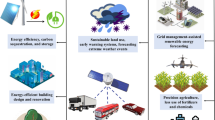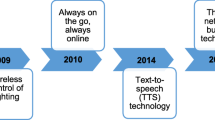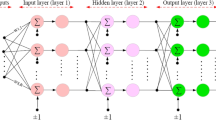Abstract
Energy management refers to saving the power by employing effective monitoring and control strategies. The demand for energy is rising in all sectors, such as residential, industrial, transportation, and agriculture, owing to our dependency on electronic appliances. Hence, of late, energy management in the households has become a pertinent issue. Electricity consumption depends on various factors, including climatic conditions, number of occupants in the household and their behavior, usage of appliances, etc. The utilization of electronic appliances and the climate conditions are inter-related; if the outside temperature is high, the usage of ACs in the house increases and vice-versa. Therefore, the climatic conditions are the most relevant factors in energy consumption. There is a need to manage the energy demand by using certain optimization approaches and by predicting the demand based on different climatic conditions. In this study, the prediction model of Artificial Neural Network (ANN) was merged with the optimization methods such as Particle Swarm Optimization (ANN-PSO) and Artificial Bee Colony (ANN-ABC). The experimental results revealed that ANN-ABC performed in a superior manner by reducing the energy consumption by up to 41.12 kWh per day. Finally, the prediction results were compared with the existing model and it was verified that the energy prediction with climatic conditions gave the better results of the power usage in the households.
Similar content being viewed by others
References
Ahmad AS, Hassan MY, Abdullah MP, Rahman HA, Hussin F, Abdullah H, Saidur R (2014). A review on applications of ANN and SVM for building electrical energy consumption forecasting. Renewable and Sustainable Energy Reviews, 33: 102–109.
Ardakani FJ, Ardehali MM (2014). Long-term electrical energy consumption forecasting for developing and developed economies based on different optimized models and historical data types. Energy, 65: 452–461.
Balshi MS, McGuire AD, Duffy P, Flannigan M, Walsh J, Melillo J (2009). Assessing the response of area burned to changing climate in Western boreal North America using a Multivariate Adaptive Regression Splines (MARS) approach. Global Change Biology, 15: 578–600.
Biswas MAR, Robinson MD, Fumo N (2016). Prediction of residential building energy consumption: A neural network approach. Energy, 117: 84–92.
Candanedo LM, Feldheim V, Deramaix D (2017). Data driven prediction models of energy use of appliances in a low-energy house. Energy and Buildings, 140: 81–97.
Chen Y, Xu P, Chu Y, Li W, Wu Y, Ni L, Bao Y, Wang K (2017). Short-term electrical load forecasting using the Support Vector Regression (SVR) model to calculate the demand response baseline for office buildings. Applied Energy, 195: 659–670.
Cottone P, Gaglio S, Re GL, Ortolani M (2015). User activity recognition for energy saving in smart homes. Pervasive and Mobile Computing, 16: 156–170.
Divina F, Gilson A, Goméz-Vela F, García Torres M, Torres J (2018). Stacking ensemble learning for short-term electricity consumption forecasting. Energies, 11(4): 949.
Do H, Cetin KS (2018). Residential building energy consumption: a review of energy data availability, characteristics, and energy performance prediction methods. Renewable Energy Reports, 5: 76–85.
Dong B, Li Z, Rahman SM, Vega R (2016). A hybrid model approach for forecasting future residential electricity consumption. Energy and Buildings, 117: 341–351.
Eberhart R, Kennedy J (1995). A new optimizer using particle swarm theory. In: Proceedings of the 6th International Symposium on Micro Machine and Human Science (MHS’95), Nagoya, Japan, pp. 39–43.
Gajowniczek K, Ząbkowski T (2017). Electricity forecasting on the individual household level enhanced based on activity patterns. PLoS One, 12: e0174098.
Godina R, Rodrigues E, Pouresmaeil E, Matias J, Catalão J (2016). Model predictive control technique for energy optimization in residential sector. In: Proceedings of the 16th International Conference on Environment and Electrical Engineering (EEEIC), Florence, Italy.
Gupta N, Ahuja N, Malhotra S, Bala A, Kaur G (2017). Intelligent heart disease prediction in cloud environment through ensembling. Expert Systems, 34 (3): e12207.
Ha DL, Joumaa H, Ploix S, Jacomino M (2012). An optimal approach for electrical management problem in dwellings. Energy and Buildings, 45: 1–14.
Juan Y-K, Gao P, Wang J (2010). A hybrid decision support system for sustainable office building renovation and energy performance improvement. Energy and Buildings, 42: 290–297.
Karaboga D (2005). An idea based on honey bee swarm for numerical optimization. Technical report-tr06. Erciyes University, Turkey.
Karaboga D, Akay B (2007). Artificial Bee Colony (ABC) algorithm on training artificial neural networks. In: Proceedings of IEEE 15th Signal Processing and Communications Applications (SIU), Eskisehir, Turkey.
Kaur J, Bala A (2018). Predicting power for home appliances based on climatic conditions. International Journal of Energy Sector Management, https://doi.org/10.1108/IJESM-04-2018-0012
Kaur J, Bala A (2019). Review of machine learning techniques for optimizing energy of home appliances. In: Fong S, Akashe S, Mahalle PN (eds), Information and Communication Technology for Competitive Strategies. Singapore: Springer Singapore. pp. 255–263.
Khakimova A, Kusatayeva A, Shamshimova A, Sharipova D, Bemporad A, Familiant Y, Shintemirov A, Ten V, Rubagotti M (2017). Optimal energy management of a small-size building via hybrid model predictive control. Energy and Buildings, 140: 1–8.
Lazos D, Sproul AB, Kay M (2014). Optimisation of energy management in commercial buildings with weather forecasting inputs: A review. Renewable and Sustainable Energy Reviews, 39: 587–603.
Li K, Pan L, Xue W, Jiang H, Mao H (2017). Multi-objective optimization for energy performance improvement of residential buildings: A comparative study. Energies, 10(2): 245.
Lin S-W, Ying K-C, Chen S-C, Lee Z-J (2008). Particle swarm optimization for parameter determination and feature selection of support vector machines. Expert Systems with Applications, 35: 1817–1824.
Mahmood D, Javaid N, Alrajeh N, Khan Z, Qasim U, Ahmed I, Ilahi M (2016). Realistic scheduling mechanism for smart homes. Energies, 9(3): 202.
Makonin S, Popowich F, Bartram L, Gill B, Bajic IV (2013). AMPds: A public dataset for load disaggregation and eco-feedback research. In: Proceedings of IEEE Electrical Power & Energy Conference, Halifax, Canada.
Makonin S, Ellert B, Bajić IV, Popowich F (2016). Electricity, water, and natural gas consumption of a residential house in Canada from 2012 to 2014. Scientific Data, 3: 160037.
Muralitharan K, Sakthivel R, Vishnuvarthan R (2018). Neural network based optimization approach for energy demand prediction in smart grid. Neurocomputing, 273: 199–208.
Rasheed M, Javaid N, Ahmad A, Jamil M, Khan Z, Qasim U, Alrajeh N (2016). Energy optimization in smart homes using customer preference and dynamic pricing. Energies, 9(8): 593.
Sharma N, Sharma P, Irwin D, Shenoy P (2011). Predicting solar generation from weather forecasts using machine learning. In: Proceedings of IEEE International Conference on Smart Grid Communications (SmartGridComm), Brussels, Belgium.
Singh S, Yassine A (2017). Mining energy consumption behavior patterns for households in smart grid. IEEE Transactions on Emerging Topics in Computing, https://doi.org/10.1109/TETC.2017.2692098
Subbiah R, Pal A, Nordberg EK, Marathe A, Marathe MV (2017). Energy demand model for residential sector: A first principles approach. IEEE Transactions on Sustainable Energy, 8: 1215–1224.
Swan LG, Ugursal VI (2009). Modeling of end-use energy consumption in the residential sector: A review of modeling techniques. Renewable and Sustainable Energy Reviews, 13: 1819–1835.
Tian W, Song J, Li Z (2014). Spatial regression analysis of domestic energy in urban areas. Energy, 76: 629–640.
Torabi M, Hashemi S, Saybani MR, Shamshirband S, Mosavi A (2019). A hybrid clustering and classification technique for forecasting short-term energy consumption. Environmental Progress & Sustainable Energy, 38: 66–76.
Wang X, Palazoglu A, El-Farra N (2015). Operational optimization and demand response of hybrid renewable energy systems. Applied Energy, 143: 324–335.
Wang Z, Wang Y, Srinivasan RS (2018a). A novel ensemble learning approach to support building energy use prediction. Energy and Buildings, 159: 109–122.
Wang Z, Wang Y, Zeng R, Srinivasan RS, Ahrentzen S (2018b). Random forest based hourly building energy prediction. Energy and Buildings, 171: 11–25.
Wei Y, Zhang X, Shi Y, Xia L, Pan S, Wu J, Han M, Zhao X (2018). A review of data-driven approaches for prediction and classification of building energy consumption. Renewable and Sustainable Energy Reviews, 82: 1027–1047.
Wood SN (2001). mgcv: GAMS and generalized ridge regression for R. R News, 1(2): 20–25.
Yin P-Y, Chao C-H (2018). Automatic selection of fittest energy demand predictors based on cyber swarm optimization and reinforcement learning. Applied Soft Computing, 71: 152–164.
Zhu G, Chow T-T, Tse N (2018). Short-term load forecasting coupled with weather profile generation methodology. Building Services Engineering Research and Technology, 39: 310–327.
Author information
Authors and Affiliations
Corresponding author
Rights and permissions
About this article
Cite this article
Kaur, J., Bala, A. A hybrid energy management approach for home appliances using climatic forecasting. Build. Simul. 12, 1033–1045 (2019). https://doi.org/10.1007/s12273-019-0552-2
Received:
Revised:
Accepted:
Published:
Issue Date:
DOI: https://doi.org/10.1007/s12273-019-0552-2




